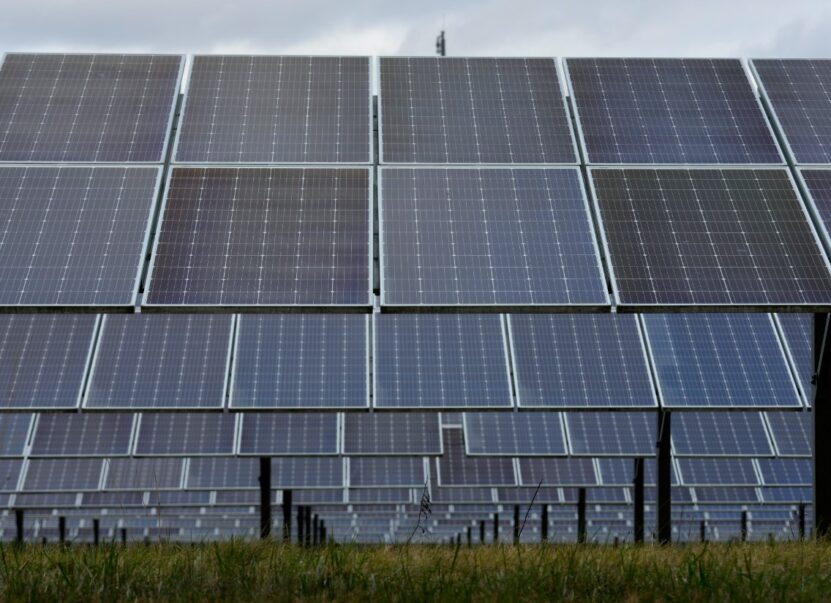In December 2023, the Federal Communications Commission (FCC) announced a new ruling that directly impacts how solar companies generate leads. This decision demands stricter consumer consent requirements, eliminating previous practices that allowed broad, unchecked outreach.
Solar companies must now secure specific consent from each potential customer before initiating any communication. While this introduces new compliance challenges, it also opens the door to improved lead quality.
Companies that adapt to these rules will be better positioned to build stronger, trust-based relationships with consumers, ultimately benefiting their long-term growth and customer satisfaction.
An Overview
| New FCC Ruling | The ruling requires solar companies to obtain explicit one-to-one consent from each lead, enhancing transparency and consumer protection. |
| Effective Date | Set to be fully enforced by January 2025, with a 12-month implementation period starting from December 2023. |
| Targeted Industry | This ruling impacts the solar lead generation sector, particularly companies that rely on third-party leads and broad consent practices. |
| Main Challenge | Reduced lead volume due to stricter consent requirements, but higher lead quality is expected as a result. |
| Opportunities | Increased consumer trust through transparent marketing practices, better conversion rates, and stronger long-term relationships. |
| Compliance Measures | Solar companies must adjust lead handling processes, verify consent accuracy, and invest in brand reputation to comply with the new rules. |
Obtain Individual Consent for Every Solar Lead

One of the most critical changes introduced by the FCC’s new ruling is the need for individual consent. In simple terms, solar companies can no longer rely on blanket opt-ins from comparison websites or third-party lead generators.
Instead, each consumer must give explicit permission for each company that wants to contact them.
Here’s why this matters:
- Increased Trust: Consumers are more likely to engage with companies they have personally chosen to hear from. When a potential customer gives you direct consent, it boosts trust, leading to better quality interactions and higher conversion rates.
- Avoid Penalties: The FCC has made it clear that non-compliance will lead to penalties. You must ensure that your consent-gathering processes are compliant with the new rules, or you could face fines and lawsuits.
What Solar Companies Should Do Now?
- Update Consent Forms: Make sure your lead generation forms clearly explain who will be contacting the consumer, without burying this information in fine print.
- Verify Lead Consent: Regularly audit your lead database to ensure that each lead has provided individual consent for your company to contact them.
- Train Sales Teams: Make sure your sales team understands the importance of verifying consent before initiating any contact.
The solar industry is expected to experience a shift from relying on large volumes of leads to focusing on higher-quality leads with genuine interest. Direct consumer consent will become a standard practice by 2025.
Companies that adapt now will see a smoother transition and may outperform those that delay compliance.
Improve Lead Quality with Transparent Marketing Practices

The latest FCC ruling has changed the game for solar companies by enforcing stricter consent requirements. Now, with one-to-one consent mandated, companies must obtain explicit permission from each potential customer, making transparency more important than ever.
Here’s Why This Matters?
- Higher Conversion Rates: Leads that provide direct consent are often more engaged and more likely to convert. Since they’ve actively chosen to hear from your company, these leads come with higher intent and better chances of closing deals.
- Better Customer Relationships: Transparency in the consent process builds trust. By clearly showing customers who will contact them, you avoid unwanted communications, making your brand stand out as one that respects privacy.
- Improved Reputation: The ruling forces solar companies to invest in building stronger brand reputations, which will play a crucial role in winning over potential customers. Online reviews, clear disclosures, and a customer-centric approach will help position your company as a leader in ethical marketing.
Steps Solar Companies Should Take
- Update Lead Generation Practices: Ensure your consent forms clearly outline who will contact the consumer. This means no hidden terms or vague language—everything should be transparent and easy to understand.
- Verify Consent Continuously: It’s not enough to collect consent once. Solar companies must regularly verify that each lead’s consent remains valid and documented.
- Leverage Trust to Stand Out: In a competitive market, transparency can set you apart. By focusing on high-quality, consent-driven leads, you’ll create better long-term relationships with your customers.
Reduce Risk with Proper Validation Processes

The new FCC ruling makes lead validation more important than ever for solar companies. With stricter requirements for one-to-one consent, businesses must ensure every lead they contact has provided explicit written consent for each individual marketing partner.
Why Lead Validation is Crucial?
- Compliance with Regulations: The FCC ruling means companies are legally required to verify that each lead has consented to contact. Failing to do so could result in hefty fines and potential lawsuits.
- Improved Lead Quality: By ensuring consent is validated, the quality of leads will naturally improve. Consumers who have directly opted in are more likely to engage with your brand and convert into paying customers.
How Solar Companies Can Stay Compliant?
- Audit Your Leads: Regularly review your lead data to ensure every lead has provided the necessary consent. This includes checking for clear documentation of consent for all communication.
- Clean Up Existing Data: Scrub your current lead databases to remove any contacts that do not meet the new FCC consent requirements. This ensures that you only engage with compliant leads moving forward.
- Record Keeping: Maintain comprehensive records of each lead’s consent, including when and how it was obtained. This documentation will protect your company in case of legal challenges.
Adapt Your Solar Marketing Strategy for the FCC Changes
The FCC’s new ruling requires solar companies to revise their marketing strategies. Adapting to these regulations involves significant changes in how leads are generated.
Key Adaptations for Marketing Strategy
- Direct Lead Generation: Invest in capturing leads directly through your website. Create landing pages that clearly explain your services and offer valuable resources to potential customers.
- Content Marketing: Develop informative content that educates consumers about solar energy. This builds credibility and encourages organic engagement.
- Referral Programs: Establish programs that incentivize current customers to recommend your services. This brings in new leads and reinforces trust among potential customers.
- Personalized Outreach: Tailor communications to meet the specific needs of each lead. Use data analytics to understand your audience better and create targeted messaging.
If you want to learn more about solar energy, especially active and passive types, click here.
Stay Compliant with FCC Regulations to Avoid Penalties
Compliance with the new FCC regulations is essential for solar companies to avoid penalties and legal repercussions.
- Legal Protection: Following FCC regulations protect your company from fines and lawsuits. Non-compliance can lead to significant financial penalties and damage your brand’s reputation.
- Consumer Confidence: Demonstrating compliance builds consumer trust. Customers feel more secure when they know companies are following the rules and respecting their privacy.
FAQs
What is the FCC 1-1 Rule?
The FCC 1-1 Rule requires that companies obtain explicit consent from consumers for each individual marketing partner they wish to contact them. This aims to enhance consumer protection and transparency in communications.
What is Rule 15 of the FCC?
Rule 15 of the FCC pertains to unlicensed radio frequency devices that can operate without a specific license. It establishes guidelines for emissions and interference to protect licensed communications.
What is the difference between FCC Part 15 and 18?
FCC Part 15 regulates unlicensed radio frequency devices, ensuring they do not cause harmful interference. In contrast, Part 18 governs industrial, scientific, and medical (ISM) equipment operating in the RF spectrum.
What is 47 CFR Part 15 of the FCC Rules?
47 CFR Part 15 of the FCC Rules outlines regulations for unlicensed transmissions and devices. It sets limits on emissions to prevent interference with licensed radio services.
What equipment is banned by the FCC?
The FCC bans certain equipment that causes harmful interference to licensed communications or does not comply with safety standards. Examples include unauthorized radio transmitters and devices that operate outside of designated frequency bands.
Last Words
The recent FCC ruling brings important changes to solar lead generation. By requiring explicit, one-to-one consent from consumers, it enhances transparency and protects their rights. Solar companies need to adjust their marketing strategies to comply with these new rules while focusing on building trust and improving lead quality.

